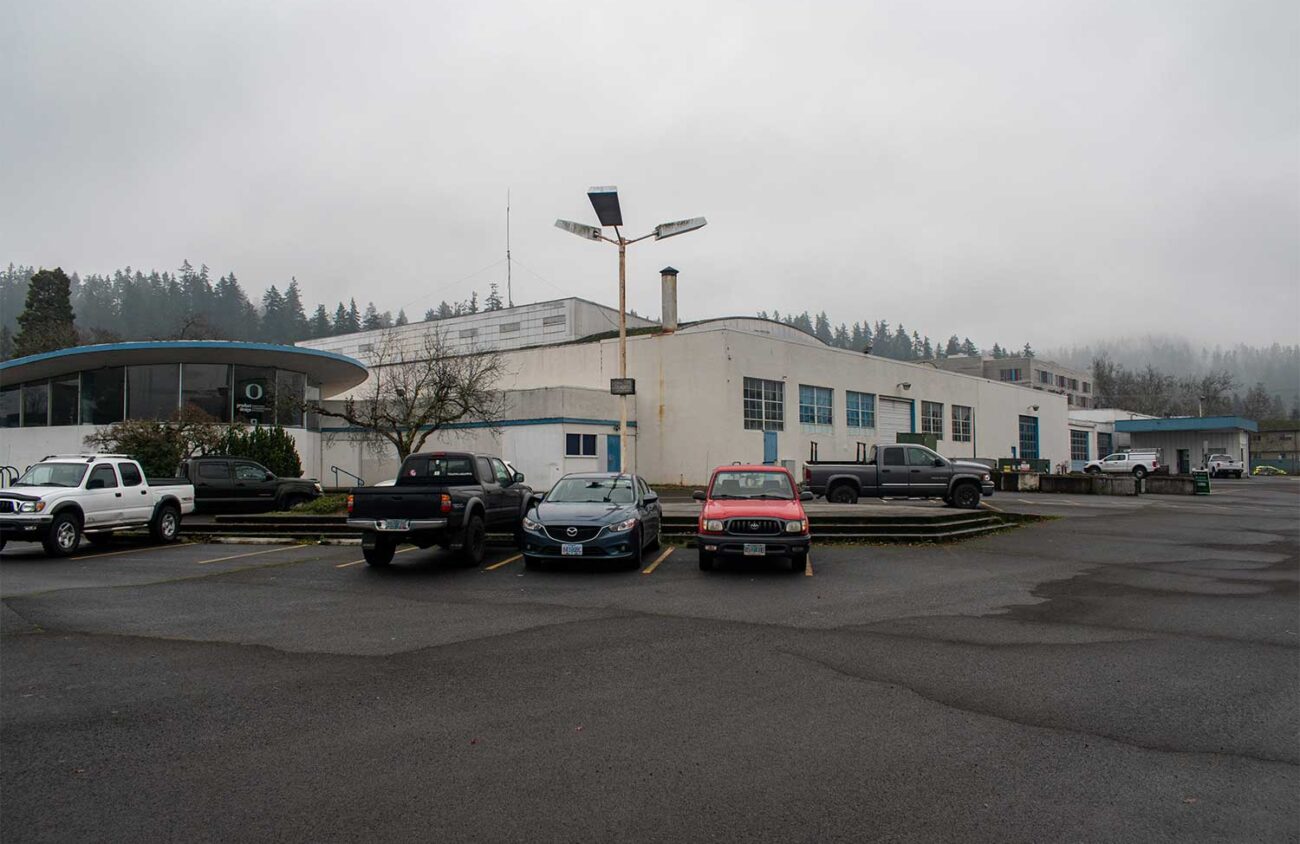Arm in arm, a Portland firm and the University of Oregon are moving ahead with what would be the biggest redevelopment project at the UO since the rebuilding of Hayward Field in 2018.
The UO has never done a project like this latest one: leasing its land to a for-profit developer who would build a major privately-owned hotel/retail/housing complex; agreeing to explore “co-branding” with the hotel; and agreeing to refer employees to the center’s apartments.
The so-called University Village development would be big: 586,000 square feet, according to the developer’s recent filings with the city. That’s equal to the footprint of four typical Costco warehouses.
The project is “pretty unique” for the UO, Jamie Moffitt, senior vice president for finance, told the UO Board of Trustees earlier this fall as it OK’d non-binding terms for what is the most recent concept of how to develop the Franklin Boulevard site on the northeast edge of campus.
The UO and the developer, which goes by the name Project^, are now hashing out details for a binding land lease. Mike Harwood, who oversees the UO’s facilities planning, says he expects a signed lease early next year.
Although dubbed a “village,” the end result won’t be a rustic hamlet.
Preliminary filings by Project^ show buildings up to seven stories surrounding the old, historic Romania car dealership. The four-acre site is one block east of another big UO development: Matthew Knight Arena.
Many specifics remain unset, Harwood tells Eugene Weekly. Basic elements include an “upper-upscale” Marriott or Hilton of seven stories with 200 rooms; two five- to seven-story market-rate apartment blocks; and a four-story parking garage flanked by townhomes, according to Project^’s filings. Eugene zoning rules limit buildings on the property to seven stories.
There’s no guarantee the deal will proceed. The UO and Project^ have drafted and scrapped several concepts since 2019. But after the UO board approved a set of terms in September, Project^ felt confident enough to begin meeting with city planners to talk details.
Officials with Project^ did not respond to emails from EW.
If a ground lease is signed, Project^ faces heavy lifting: signing up investors to provide equity money, and lenders to provide loans, and nailing down specifics of the buildings. A total cost for the four-acre project has not been disclosed.
The historic-listed “Googie” architecture car dealership is required to be preserved. Project^’s paperwork shows it as revamped retail space.
The initial Project^ grand plan was for a hotel and offices, but the company dropped that as COVID-19 gutted demand for office space. The next iteration was almost all apartments, but rising mortgage interest rates made that unattractive to the developer, the UO says.
Construction of the current version would begin in late 2026 and take three years, the UO says.
The UO would lease the land to Project^ starting at $589,000 a year for up to 75 years, according to the term sheet. In the context of the UO’s annual budget of $1.4 billion, the rent is paltry. After all, the UO pays its president, Karl Scholz, nearly double the proposed lease. His salary, UO payments into his retirement account, and his car allowance total $911,000 a year.
But UO officials like the project’s housing and hotel/conference amenities. “We are finding that recruiting faculty and staff was getting very challenging because of housing situations, so part of the goal of this was to provide … some shorter-term attractive housing for our faculty and staff that’s more affordable and closer to campus, as we’re recruiting,” Moffitt told the board in September. The development would have 150 to 200 housing units, Harwood says.
Project^ will explore getting federal or state help to keep the apartment rents “affordable,” he says.
Would UO employees have priority on the housing? That’s unclear. “Of course, we would like our staff and faculty to reside there. Whether we can give them some sort of preference or not, I just don’t know the answer to that,” Harwood tells EW.
UO staff told the board they would explore co-branding with the hotel. It’s hazy what that might look like. “We have a number of things we have to navigate in that realm to make sure we are not being unfairly [preferential],” Harwood says.
